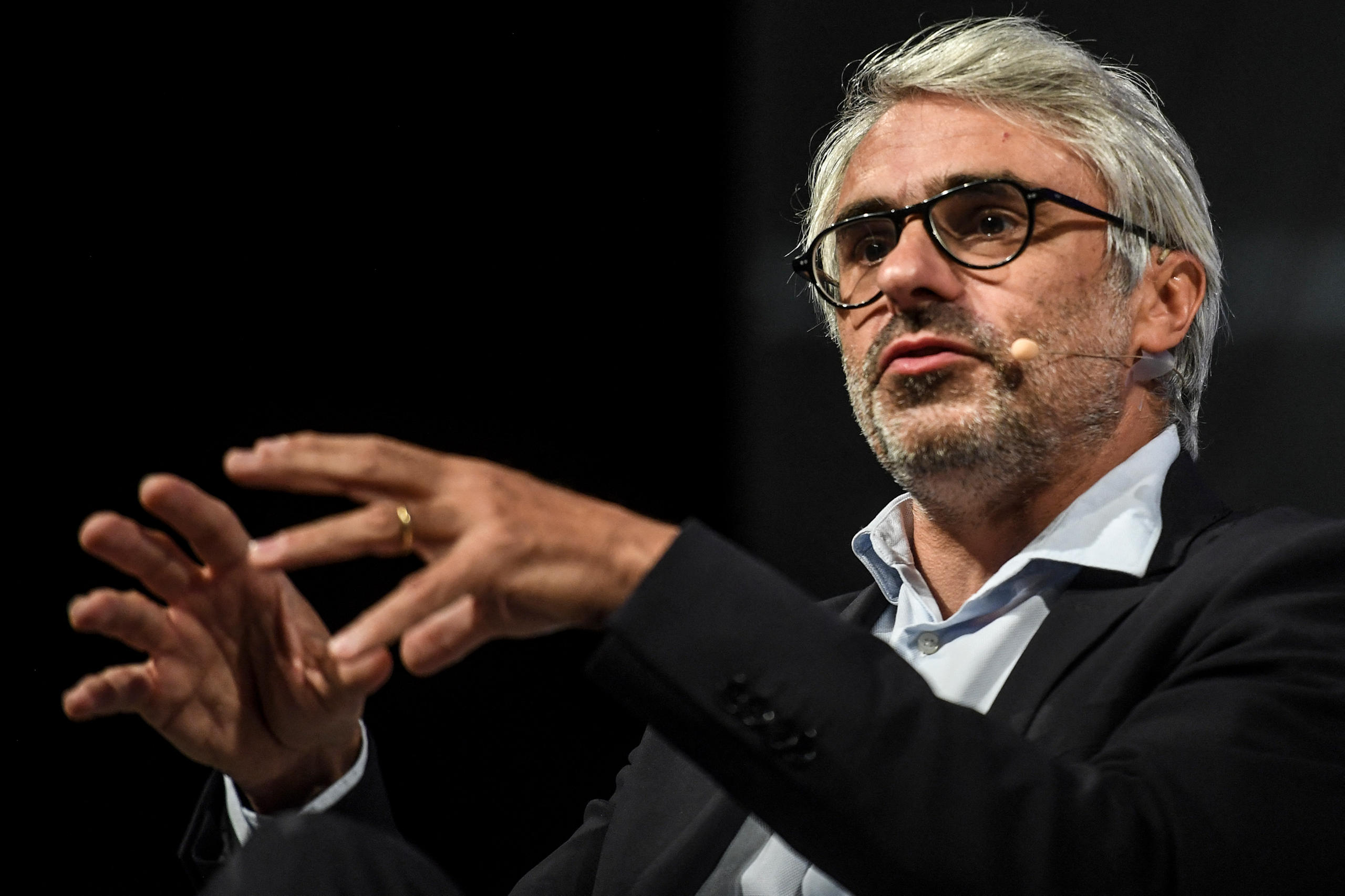
What lies ahead for Switzerland: the economic outlook for 2024

A tourism sector that dreams of being a safe haven, pharma giants on a diet and industrialists in the grip of an economic slowdown: SWI swissinfo.ch journalists select the major developments that await the Swiss economy in 2024.
Growth continues to slow
The sluggish economy in the eurozone and interest rate rises in many countries will continue to have an impact on the Swiss economy next year. The State Secretariat for Economic Affairs (SECO) is forecasting GDP growth of 1.1%, down from 1.3% in 2023, the second year in a row that growth will be well below average.
As a result of the more restrictive monetary policy pursued by the Swiss National Bank (SNB), inflation should continue to fall next year, dropping below the 2% mark.
Despite the stagnation of the economy and the expected slight rise in unemployment (from 2% in 2023 to 2.3%), the shortage of qualified personnel is set to persist in Switzerland, as in other advanced economies. The staff shortage index has risen by a further 24% in 2023, according to data published at the end of November by the placement company Adecco and the University of Zurich’s Swiss Labour Market Monitor.
More than 120,000 vacancies existed at the end of August, when the latest figures from the Federal Statistical Office (FSO) were published. The sectors in which jobs are hardest to fill are healthcare, IT and engineering. As for the salary increases planned by companies (2% on average), these are likely to be largely absorbed by inflation once again.
Switzerland’s island of safety attracts tourists from all over the world
Swiss tourism was back in full swing in 2023, with overnight stays expected to top the 40 million mark for the first time. The coming months also look promising: the Swiss Economic Institute (KOF) at federal technology institute ETH Zurich is forecasting an increase of 270,000 overnight stays throughout Switzerland this winter.
With the strength of the Swiss franc, inflation and reduced purchasing power, the overall situation for the sector is rather poor. But according to Simon Wiget, director of Verbier Tourism, Switzerland stands out from the crowd because it offers a haven of peace in the midst of a world in turmoil. “In today’s anxiety-filled environment, people want to be reassured. And Switzerland offers a lot of security,” he told Swiss public television, RTS.
But compared with 2019, the year before the pandemic, Switzerland is still missing some foreign guests, particularly those from faraway countries such as China, India, Japan and the Gulf monarchies. The situation concerning tourists from China is not expected to return to normal before the end of next year, according to Véronique Kanel, spokeswoman for Switzerland Tourism.

More
‘High costs are not prohibitive for premium destination Switzerland’
Swiss pharma plays catch up as obesity drugs steal the show
Following a year of restructuring, big acquisitions and leadership changes, Swiss pharma will look to create some positive buzz and assure investors of their growth potential in 2024. Shortly after spinning off its generics division Sandoz in October, Novartis dialled up its five-year sales forecast as it focuses on so-called innovative therapies – on-patent treatments that have the highest profit potential.
The dust is also settling for Roche as the surge of Covid-19 test sales disappears from the balance sheet. CEO Thomas Schinecker, who will celebrate one year in the post in March, made a couple of big acquisitions in 2023 that could help make up for recent clinical trial disappointments and replace blockbusters nearing patent expiration.
With these investments, Swiss pharma will try to steal some limelight from peers such as Denmark’s Novo Nordisk, which dominated headlines in 2023 with anti-obesity drugs. Roche hopes its recent $2.7 billion (CHF2.3 billion) acquisition of a US biotech with obesity drugs in the pipeline will help it capture someExternal link of what analysts predict could be a $100 billion market in ten years.
The industry won’t be able to escape pressure to lower prices next year though. Even in wealthy Switzerland, a major increase in mandatory health insurance premiums has triggered questions about how much drug prices are to blame.
The greatest pressure is coming from the United States, where the government is moving forwards with negotiations on drug prices under the US Inflation Reduction Act. In December, the US government took another swipe at the industry, announcing plans to seize patents developed with government funding if drug prices are too high. This will all play into Swiss pharma’s investment and marketing decisions next year.

More
Why Switzerland is running out of pharmaceuticals
Multinationals navigate geopolitical forces and domestic pressure
Switzerland’s largest global companies will continue to navigate the tug-of-war between China and the United States, and wider de-globalisation forces in 2024. Many companies see China as key to their growth strategy despite the country’s recent economic woes, human rights worries, and competing trade tariffs between the US and China.
Swiss companies will also face more domestic pressure, as the Responsible Business Initiative, which narrowly failed in a nationwide vote in 2020, makes a comeback. Campaigners have announced plans for a new version of the initiative next year aimed at holding companies accountable for their human rights and environmental impacts in global supply chains. They argue Switzerland needs to stay apace with regulation in the European Union, which is finalising a corporate accountability law.
One question hanging over multinationals is how the global deal for a minimum corporate tax rate will get rolled out and affect business location decisions. Switzerland will start to implementExternal link the 15% corporate tax rate as of January 2024 but many countries including the US, China, Brazil and India have no plans to implement the minimum corporate tax rate.

More
Tax reform: ‘Switzerland has understood that it’s better to be at the negotiating table’
Bleak outlook for the machinery industry
After two years of strong growth, the Swiss machinery, electrical equipment and metals industry (MEM industries) is going through a difficult period. The industry’s umbrella association, Swissmem, does not hesitate to speak of a recession.
In the first nine months of 2023, new orders fell by 9.9% compared with the same period last year. The rise in interest rates decided by central banks in recent months is weighing on the sales of an industry that employs more than 325,000 people in Switzerland and exports almost 80% of its production (60% of which to the EU).
Given the economic difficulties being experienced by Switzerland’s main partners, led by Germany, China and the United States, the outlook for the coming months is no more encouraging. “Most companies in the sector can expect a difficult period ahead,” said Stefan Brupbacher, director of Swissmem, at the end of November.

More
Swiss industry faces record shortage of skilled workers
Towards the end of the euphoria for Swiss watchmakers
Buoyed by a luxury sector that is not experiencing the crisis, Swiss watch exports are heading for a new record in 2023: in the first 11 months of the year, they exceeded the CHF24 billion ($27.7 billion) mark, up 7.7% on 2022. The Swiss watch industry now employs more than 65,000 people, a level not seen since the 1970s.
However, this period of exceptional growth, which has continued since the post-Covid recovery of 2021, is set to come to an end soon. “In the short term, caution is called for because of the geopolitical context, inflation and the strength of the Swiss franc, particularly among subcontractors who are facing postponed orders,” says Jean-Daniel Pasche, president of the Federation of the Swiss Watch Industry.
The Vontobel bank also expects a “normalisation of growth” for 2024, with an increase in the value of exports of between 2% and 4%. “Strong brands that have invested in marketing and their distribution network will continue to grow. For other brands, the situation is much more fragile: volumes will have to be revised downwards,” reckons Jean-Philippe Bertschy, a watch expert at Vontobel.
In the longer term, however, Pasche still sees opportunities for growth in established markets such as the United States and China, as well as in emerging markets such as India, Brazil and Indonesia.
The spectre of the Credit Suisse debacle will continue to haunt Switzerland
The impact of Credit Suisse’s collapse will continue to dominate the Swiss financial sector in 2024 and likely lead to a reshuffling of the regulatory deck of cards.
UBS, which bought the ailing Credit Suisse in March, has warned that 2024 will prove the toughest year for integration as it grapples with merging different IT, accounting and business systems.
The success of the merger is critical for Switzerland’s entire financial industry. If it fails, Switzerland will face an uncertain future without a major international banking player.
This threat has once again sharpened the thoughts of regulators and lawmakers to making the banking system safer. The debate around how exactly to do this will become even louder and more fractious in the coming months.
The main areas of debate are: giving regulators greater powers to control bad banking behaviour, forcing banks to hold more liquidity to stave off bank runs and the role of the central bank and the state in propping up failing institutions.
Connected to this debate is the ongoing parliamentary commission that is probing the background to Credit Suisse’s collapse to determine what went wrong and who was to blame.
The commission will present its findings in 2024, which will have a bearing on what measures are deemed necessary in future to prevent a repeat banking catastrophe.
Other countries are circling in the hope of snatching away a chunk of offshore wealth from Swiss vaults. Switzerland remains the number one wealth management centre, managing CHF2.2 trillion of assets belonging to foreign private individuals.
It remains to be seen how the collapse of Credit Suisse, along with Swiss sanctions against wealthy Russians, will influence Switzerland’s reputation in the coming years.
Two other major ongoing themes are sustainable finance and the role of technological advances in the financial system.
The finance ministry has warned banks to expect binding laws on sustainable finance in 2024 if the current self-regulatory system fails to protect against greenwashing.
On the technology side, the Swiss National Bank, the country’s main stock exchange and commercial banks will step up experiments with Distributed Ledger Technology (DLT) to bring about promised efficiency gains for trading.

More
Credit Suisse crash: ‘Switzerland is not as market oriented as you may think’
Edited by Virginie Mangin and Samuel Jaberg

In compliance with the JTI standards
More: SWI swissinfo.ch certified by the Journalism Trust Initiative

























You can find an overview of ongoing debates with our journalists here . Please join us!
If you want to start a conversation about a topic raised in this article or want to report factual errors, email us at english@swissinfo.ch.